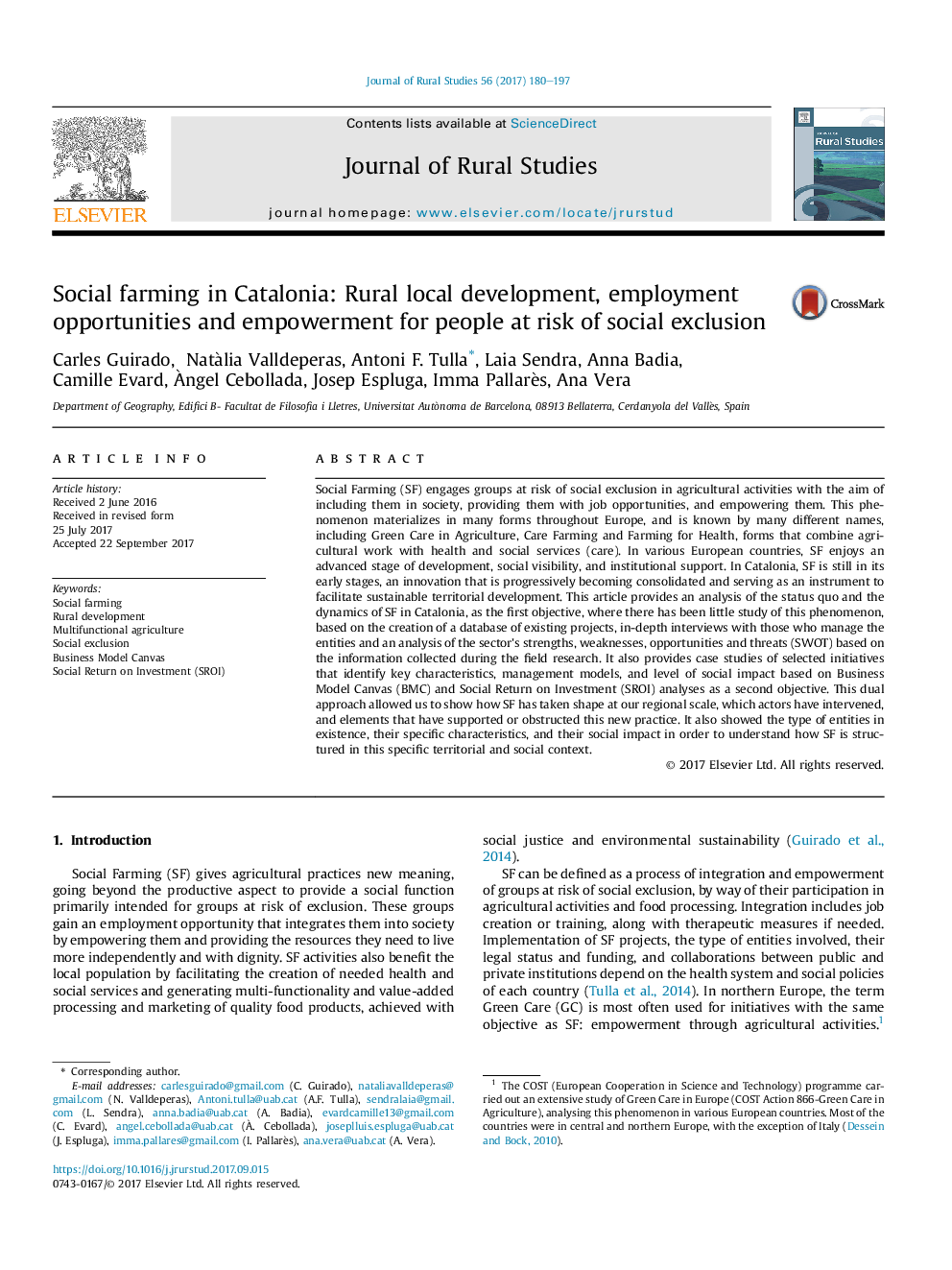| Article ID | Journal | Published Year | Pages | File Type |
|---|---|---|---|---|
| 4759932 | Journal of Rural Studies | 2017 | 18 Pages |
Abstract
Social Farming (SF) engages groups at risk of social exclusion in agricultural activities with the aim of including them in society, providing them with job opportunities, and empowering them. This phenomenon materializes in many forms throughout Europe, and is known by many different names, including Green Care in Agriculture, Care Farming and Farming for Health, forms that combine agricultural work with health and social services (care). In various European countries, SF enjoys an advanced stage of development, social visibility, and institutional support. In Catalonia, SF is still in its early stages, an innovation that is progressively becoming consolidated and serving as an instrument to facilitate sustainable territorial development. This article provides an analysis of the status quo and the dynamics of SF in Catalonia, as the first objective, where there has been little study of this phenomenon, based on the creation of a database of existing projects, in-depth interviews with those who manage the entities and an analysis of the sector's strengths, weaknesses, opportunities and threats (SWOT) based on the information collected during the field research. It also provides case studies of selected initiatives that identify key characteristics, management models, and level of social impact based on Business Model Canvas (BMC) and Social Return on Investment (SROI) analyses as a second objective. This dual approach allowed us to show how SF has taken shape at our regional scale, which actors have intervened, and elements that have supported or obstructed this new practice. It also showed the type of entities in existence, their specific characteristics, and their social impact in order to understand how SF is structured in this specific territorial and social context.
Related Topics
Life Sciences
Agricultural and Biological Sciences
Forestry
Authors
Carles Guirado, Natà lia Valldeperas, Antoni F. Tulla, Laia Sendra, Anna Badia, Camille Evard, Ãngel Cebollada, Josep Espluga, Imma Pallarès, Ana Vera,
